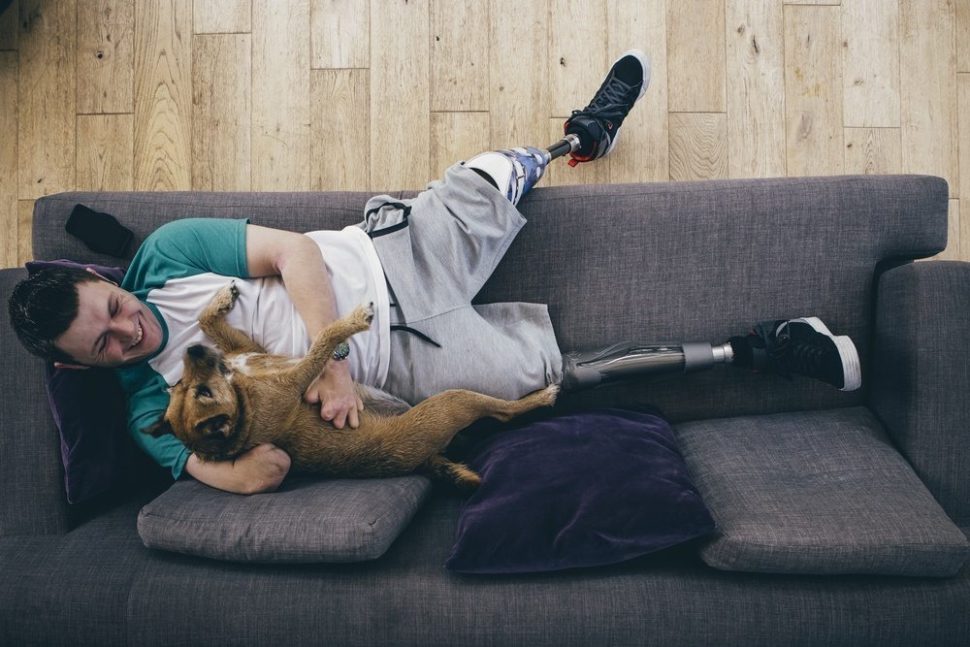The loss of motor function in the arms and legs is known as Quadriplegia, and until now patients of this condition had little hope of ever performing normal everyday activities without assistance. According to a new paper published in Science Robotics, a new innovation may have changed that for five volunteers.
One of the most exciting new developments has been in the field of bionics, where machines are being used to provide ambulatory ability where once there was none.
Science fiction has long imagined people with machine-made body parts, and this fantasy may soon be a reality. First, we must understand the delicate connections necessary for the human brain to operate a limb.
By understanding that connection, scientists will be able to bring back mobility to those who have lost it. Technologies that can replace limbs are referred to as brain-machine interfaces, or BMIs.Click To Tweet
With BMIs, scientists hope to replace lost ability. One study detailed in the journal Science Robotics shows how five volunteers were fitted with an exoskeleton that they were able to interface with in order to perform what was referred to as an ‘activity of daily living (ADL)‘
Hand Exoskeleton Helping With Everyday Activities
The study was conducted on five test subjects. They are all male and between 14 and 30 years of age. The subjects all suffered from Quadriplegia. The goal was to use a hand exoskeleton in order to give them the ability to perform simple daily activities such as grasping, lifting, and holding objects. These abilities are necessary for eating or drinking independently.
The hand exoskeleton used a BMI that used electroencephalography (EEG) and electrooculography (EOG) to make fine hand movements by manipulating the paralyzed hand and fingers. Subjects were fitted with the exoskeleton and asked to perform reaching and grasping actions, and they only had to visualize the action to utilize the BMI and manipulate the exoskeleton, proving the intuitiveness of BMI control.

The testing showed a full restoration of ADL independence, meaning that the subjects were able to write, eat and drink without needing assistance.
To read the paper yourself, check out the original document.
Expanding the Discussion
The results of the study are a good sign for the future of biomechanics. BMIs are proving their usefulness in restoring the independence of patients. Yet, more research is sure to advance this field of study. Like with the hand exoskeleton, this research could potentially recover parts of patients’ lives they thought were lost.
Medicine has made great strides in the last century, and it looks like it will keep its momentum in the Fourth Industrial Revolution. BMIs are changing the way we understand the interaction between our body and our brain. They may even provide a solution for one of the most debilitating conditions humankind has ever had to contend with.


















Investment is one of the best ways to achieve financial freedom. For a beginner there are so many challenges you face. It’s hard to know how to get started. Trading on the Cryptocurrency market has really been a life changer for me. I almost gave up on crypto at some point not until saw a recommendation on Elon musk successfully success story and I got a proficient trader/broker Mr Bernie Doran , he gave me all the information required to succeed in trading. I made more profit than I could ever imagine. I’m not here to converse much but to share my testimony; I have made total returns of $10,500.00 from an investment of just $1000.00 within 1 week. Thanks to Mr Bernie I’m really grateful,I have been able to make a great returns trading with his signals and strategies .I urge anyone interested in INVESTMENT to take bold step in investing in the Cryptocurrency Market, he can also help you RECOVER your lost/stolen Cryptocurrencies. you can reach him on WhatsApp : + 1 (424) 285 – 0682 or his Gmail : BERNIEDORANSIGNALS @ GMAIL . COM bitcoin is taking over the world, tell him I referred you